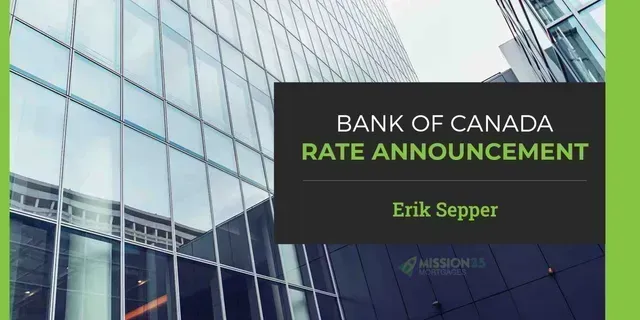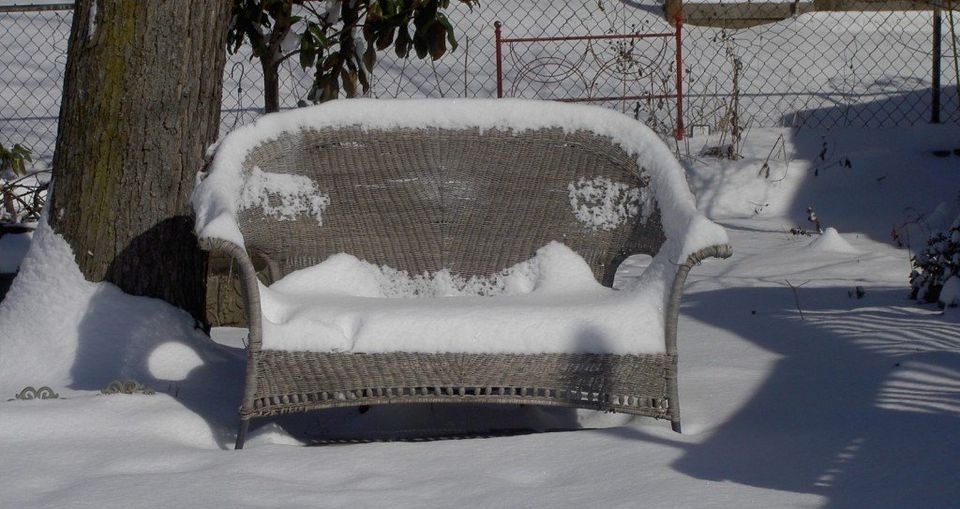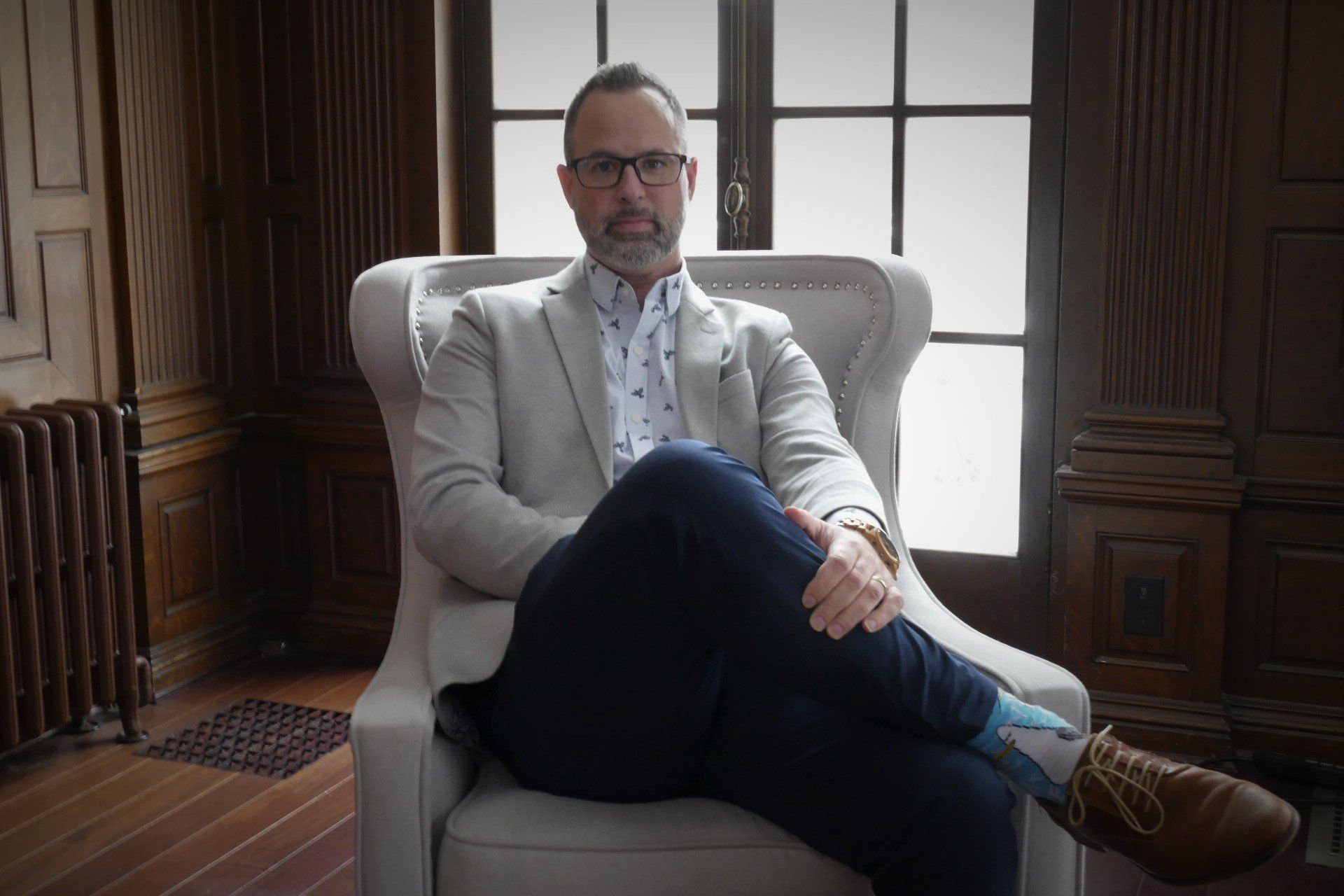The 10 Don’ts of Mortgage Closing
Erik Sepper • February 18, 2020

Okay, so here we are... we have worked together to secure financing for your mortgage. You are getting a great rate, favourable terms that meet your mortgage goals, the lender is satisfied with all the supporting documents, we are broker complete, and the only thing left to do is wait for the day the lawyers advance the funds for the mortgage. Here is a list of things you should NEVER do in the time between your financing complete date (when everything is setup and looks good) and your closing date (the day the lender actually advances funds).
Never make changes to your financial situation without first consulting me. Changes to your financial situation before your mortgage closes could actually cause your mortgage to be declined.
So without delay, here are the 10 Don'ts of Mortgage Closing... inspired by real life situations.
1. Don't quit your job.
This might sound obvious, but if you quit your job we will have to report this change in employment status to the lender. From there you will be required to support your mortgage application with your new employment details. Even if you have taken on a new job that pays twice as much in the same industry, there still might be a probationary period and the lender might not feel comfortable with proceeding. If you are thinking of making changes to your employment status... contact me first, it might be alright to proceed, but then again it might just be best to wait until your mortgage closes! Let's talk it out.
2. Don't do anything that would reduce your income.
Kinda like point one, don't change your status at your existing employer. Getting a raise is fine, but dropping from Full Time to Part Time status is not a good idea. The reduced income will change your debt services ratios on your application and you might not qualify.
3. Don't apply for new credit.
I realize that you are excited to get your new house, especially if this is your first house, however now is not the time to go shopping on credit or take out new credit cards. So if you find yourself at the Brick, shopping for new furniture and they want you to finance your purchase right now... don't. By applying for new credit and taking out new credit, you can jeopardize your mortgage.
4. Don't get rid of existing credit.
Okay, in the same way that it's not a good idea to take on new credit, it's best not to close any existing credit either. The lender has agreed to lend you the money for a mortgage based on your current financial situation and this includes the strength of your credit profile. Mortgage lenders and insurers have a minimum credit profile required to lend you money, if you close active accounts, you could fall into an unacceptable credit situation.
5. Don't co-sign for a loan or mortgage for someone else.
You may have the best intentions in the world, but if you co-sign for any type of debt for someone else, you are 100% responsible for the full payments incurred on that loan. This extra debt is added to your expenses and may throw your ratios out of line.
6. Don't stop paying your bills.
Although this is still good advice for people purchasing homes, it is more often an issue in a refinance situation. If we are just waiting on the proceeds of a refinance in order to consolidate some of your debts, you must continue making your payments as scheduled. If you choose not to make your payments, it will reflect on your credit bureau and it could impact your ability to get your mortgage. Best advice is to continue making all your payments until the refinance has gone through and your balances have been brought to zero.
7. Don't spend your closing costs.
Typically the lender wants to see you with 1.5% saved up to cover closing costs... this money is used to cover the expense of closing your mortgage, like paying your lawyer for their services. So you might think that because you shouldn't take out new credit to buy furniture, you can use this money instead. Bad idea. If you don't pay the lawyer... you aren't getting your house, and the furniture will have to be delivered curbside. And it's cold in Canada. You get the picture. However just in case you don't, I included it below.
8. Don't change your real estate purchase contract.
Often times when you are purchasing a property there will be things that show up after the fact on an inspection and you might want to make changes to the contract. Although not a huge deal, it can make a difference for financing. So if financing is complete, it is best practice to check with me before you go and make any changes to the purchase contract.
9. Don't list your property for sale.
If we have set up a refinance for your property and your goal is to eventually sell it... wait until the funds have been advanced before listing it. Why would a lender want to lend you money on a mortgage when you are clearly going to sell it right away (even if we arranged a short term).
10. Don't accept unsolicited mortgage advice from unlicensed or unqualified individuals.
Although this point is least likely to impact the approval of your mortgage status, it is frustrating when people who don't have the first clue about your unique situation give you unsolicited advice about what you should do with your mortgage, making you second guess yourself. Now, if you have any questions at all, I am more than happy to discuss them with you. I am a mortgage professional and I help clients finance property everyday, I know the unique in's and out's, do's and don'ts of mortgages. Placing a lot of value on unsolicited mortgage advice from a non-licensed person doesn't make a lot of sense and might lead you to make some of the mistakes as listed in the 9 previous points!
So in summary, the only thing you should do while you are waiting for the advance of your mortgage funds is to continue living your life like you have been living it! Keep going to work and paying your bills on time!
Now... what about after your mortgage has funded? You are now free to do whatever you like! Go ahead... quit your job, go to part time status, apply for new credit to buy a couch and 78" TV, close your credit cards, co-sign for a mortgage, sell your place, or soak in as much unsolicited advice as you want! It's up to you! But just make sure your mortgage has funded first. Also it is good to note, if you do quit your job, make sure you have enough cash on hand to continue making your mortgage payments! The funny thing about mortgages is if you don't make your payments, the lender will take your property and sell it to someone else and you will be left on that curbside couch (as pictured above). Obviously, if you have any questions, I would love to answer them for you, feel free to contact me anytime!

So, you’re thinking about buying a home. You’ve got Pinterest boards full of kitchen inspo, you’re casually scrolling listings at midnight, and your friends are talking about interest rates like they’re the weather. But before you dive headfirst into house hunting— wait . Let’s talk about what “ready” really means when it comes to one of the biggest purchases of your life. Because being ready to own a home is about way more than just having a down payment (although that’s part of it). Here are the real signs you're ready—or not quite yet—to take the plunge into homeownership: 1. You're Financially Stable (and Not Just on Payday) Homeownership isn’t a one-time cost. Sure, there’s the down payment, but don’t forget about: Closing costs Property taxes Maintenance & repairs Insurance Monthly mortgage payments If your budget is stretched thin every month or you don’t have an emergency fund, pressing pause might be smart. Owning a home can be more expensive than renting in the short term—and those unexpected costs will show up. 2. You’ve Got a Steady Income and Job Security Lenders like to see consistency. That doesn’t mean you need to be at the same job forever—but a reliable, documented income (ideally for at least 2 years) goes a long way in qualifying for a mortgage. Thinking of switching jobs or going self-employed? That might affect your eligibility, so timing is everything. 3. You Know Your Credit Score—and You’ve Worked On It Your credit score tells lenders how risky (or trustworthy) you are. A higher score opens more doors (literally), while a lower score may mean higher rates—or a declined application. Pro tip: Pull your credit report before applying. Fix errors, pay down balances, and avoid taking on new debt if you’re planning to buy soon. 4. You’re Ready to Stay Put (At Least for a Bit) Buying a home isn’t just a financial decision—it’s a lifestyle one. If you’re still figuring out your long-term plans, buying might not make sense just yet. Generally, staying in your home for at least 3–5 years helps balance the upfront costs and gives your investment time to grow. If you’re more of a “see where life takes me” person right now, that’s totally fine—renting can offer the flexibility you need. 5. You’re Not Just Buying Because Everyone Else Is This one’s big. You’re not behind. You’re not failing. And buying a home just because it seems like the “adult” thing to do is a fast way to end up with buyer’s remorse. Are you buying because it fits your goals? Because you’re ready to settle, invest in your future, and take care of a space that’s all yours? If the answer is yes—you’re in the right headspace. So… Are You Ready? If you’re nodding along to most of these, amazing! You might be more ready than you think. If you’re realizing there are a few things to get in order, that’s okay too. It’s way better to prepare well than to rush into something you're not ready for. Wherever you’re at, I’d love to help you take the next step—whether that’s getting pre-approved, making a plan, or just asking questions without pressure. Let’s make sure your homebuying journey starts strong. Connect anytime—I’m here when you’re ready.

Thinking of Calling Your Bank for a Mortgage? Read This First. If you're buying a home or renewing your mortgage, your first instinct might be to call your bank. It's familiar. It's easy. But it might also cost you more than you realize—in money, flexibility, and long-term satisfaction. Before you sign anything, here are four things your bank won’t tell you—and four reasons why working with an independent mortgage professional is the smarter move. 1. Your Bank Offers Limited Mortgage Options Banks can only offer what they sell. So if your financial situation doesn’t fit neatly into their guidelines—or if you’re looking for competitive terms—you might be out of luck. Working with a mortgage broker? You get access to mortgage products from hundreds of lenders : major banks, credit unions, monoline lenders, alternative lenders, B lenders, and even private funds. That means more options, more flexibility, and a much better chance of finding a mortgage that fits you. 2. Bank Reps Are Salespeople—Not Mortgage Strategists Let’s be honest: most bank mortgage reps are trained to sell their employer’s products—not to analyze your financial goals or tailor a long-term mortgage plan. Their job is to generate revenue for the bank. Independent mortgage professionals are different. We’re not tied to one lender—we’re tied to you. Our job is to shop around, negotiate on your behalf, and recommend the mortgage that offers the best balance of rate, terms, and flexibility. And yes, we get paid by the lender—but only after we find you a mortgage that works for your situation. That creates a win-win-win: you get the best deal, we earn our fee, and the lender earns your business. 3. Banks Don’t Lead with Their Best Rate It’s true. Banks often reserve their best rates for those who ask for them—or threaten to walk. And guess what? Most people don’t. Over 50% of Canadians accept the first renewal offer they get by mail. No questions asked. That’s exactly what the banks count on. Mortgage professionals don’t play that game. We start by finding lenders offering competitive rates upfront, and we handle the negotiations for you. There’s no guesswork, no pressure, and no settling for less than you deserve. 4. Bank Mortgages Are Often More Restrictive Than You Think Not all mortgages are created equal. Some come with hidden traps—especially around penalties. Ever heard of a sky-high prepayment charge when someone breaks their mortgage early? That’s often due to something called an Interest Rate Differential (IRD) —and big banks are notorious for using the harshest IRD calculations. When we help you choose a mortgage, we don’t just focus on the interest rate. We look at the whole picture, including: Prepayment privileges Penalty calculations Portability Future flexibility That way, if your life changes, your mortgage won’t become a financial anchor. A Quick Recap What your bank typically offers: Only their own limited mortgage products Sales-focused representatives, not mortgage strategists Default rates that aren’t usually their best Restrictive contracts with high penalties What an independent mortgage professional delivers: Access to over 200 lenders and customized mortgage solutions Personalized advice and long-term financial strategy Competitive rates and terms upfront Transparent, flexible mortgage options designed around your needs Let’s Talk Before You Sign Your mortgage is likely the biggest financial commitment you’ll ever make. So why settle for a one-size-fits-all solution? If you're buying, refinancing, or renewing, I’d love to help you explore your options, explain the fine print, and find a mortgage that truly works for you. Let’s start with a conversation—no pressure, just good advice.

Bank of Canada maintains policy rate at 2¼%. FOR IMMEDIATE RELEASE Media Relations Ottawa, Ontario January 28, 2026 The Bank of Canada today held its target for the overnight rate at 2.25%, with the Bank Rate at 2.5% and the deposit rate at 2.20%. The outlook for the global and Canadian economies is little changed relative to the projection in the October Monetary Policy Report (MPR). However, the outlook is vulnerable to unpredictable US trade policies and geopolitical risks. Economic growth in the United States continues to outpace expectations and is projected to remain solid, driven by AI-related investment and consumer spending. Tariffs are pushing up US inflation, although their effect is expected to fade gradually later this year. In the euro area, growth has been supported by activity in service sectors and will get additional support from fiscal policy. China’s GDP growth is expected to slow gradually, as weakening domestic demand offsets strength in exports. Overall, the Bank expects global growth to average about 3% over the projection horizon. Global financial conditions have remained accommodative overall. Recent weakness in the US dollar has pushed the Canadian dollar above 72 cents, roughly where it had been since the October MPR. Oil prices have been fluctuating in response to geopolitical events and, going forward, are assumed to be slightly below the levels in the October report. US trade restrictions and uncertainty continue to disrupt growth in Canada. After a strong third quarter, GDP growth in the fourth quarter likely stalled. Exports continue to be buffeted by US tariffs, while domestic demand appears to be picking up. Employment has risen in recent months. Still, the unemployment rate remains elevated at 6.8% and relatively few businesses say they plan to hire more workers. Economic growth is projected to be modest in the near term as population growth slows and Canada adjusts to US protectionism. In the projection, consumer spending holds up and business investment strengthens gradually, with fiscal policy providing some support. The Bank projects growth of 1.1% in 2026 and 1.5% in 2027, broadly in line with the October projection. A key source of uncertainty is the upcoming review of the Canada-US-Mexico Agreement. CPI inflation picked up in December to 2.4%, boosted by base-year effects linked to last winter’s GST/HST holiday. Excluding the effect of changes in taxes, inflation has been slowing since September. The Bank’s preferred measures of core inflation have eased from 3% in October to around 2½% in December. Inflation was 2.1% in 2025 and the Bank expects inflation to stay close to the 2% target over the projection period, with trade-related cost pressures offset by excess supply. Monetary policy is focused on keeping inflation close to the 2% target while helping the economy through this period of structural adjustment. Governing Council judges the current policy rate remains appropriate, conditional on the economy evolving broadly in line with the outlook we published today. However, uncertainty is heightened and we are monitoring risks closely. If the outlook changes, we are prepared to respond. The Bank is committed to ensuring that Canadians continue to have confidence in price stability through this period of global upheaval. Information note The next scheduled date for announcing the overnight rate target is March 18, 2026. The Bank’s next MPR will be released on April 29, 2026. Read the January 28th, 2026 Monetary Report


